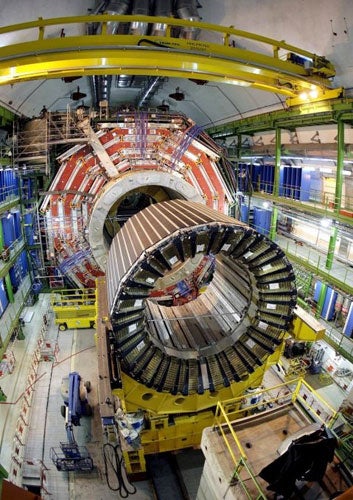'Big bang' collider hit by further delay

Your support helps us to tell the story
From reproductive rights to climate change to Big Tech, The Independent is on the ground when the story is developing. Whether it's investigating the financials of Elon Musk's pro-Trump PAC or producing our latest documentary, 'The A Word', which shines a light on the American women fighting for reproductive rights, we know how important it is to parse out the facts from the messaging.
At such a critical moment in US history, we need reporters on the ground. Your donation allows us to keep sending journalists to speak to both sides of the story.
The Independent is trusted by Americans across the entire political spectrum. And unlike many other quality news outlets, we choose not to lock Americans out of our reporting and analysis with paywalls. We believe quality journalism should be available to everyone, paid for by those who can afford it.
Your support makes all the difference.The secrets of the Big Bang will have to remain secret a little longer. The Large Hadron Collider, which took 20 years to build and cost £3.6bn, will not be able to unravel the mysteries of the universe for at least another two months, scientists announced yesterday. The machine – a 17-mile circuit of super-cooled magnets deep beneath the borders of France and Switzerland – had to be shut down when temperatures rose by about 100C, causing a leak of a ton of liquid helium into the tunnel. Scientists had hoped that the problem could be resolved quickly but yesterday announced that the project – beset by problems during its construction– will be further delayed.
James Gilles, a spokesman for the European Organisation for Nuclear Research (Cern), said: "It's too early to say precisely what happened, but it seems to be a faulty electrical connection between two magnets that stopped superconducting, melted and led to a mechanical failure and let the helium out."
Join our commenting forum
Join thought-provoking conversations, follow other Independent readers and see their replies
Comments